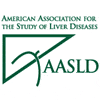 Adding Incivek (telaprevir) to a regimen of pegylated interferon and ribavirin both shortens the treatment duration and raises cure rates among gay, HIV-positive men coinfected with acute hepatitis C virus (HCV), aidsmap reports. Daniel Fierer, MD, of Mount Sinai Medical Center, presented findings from an open-label pilot study at the 64th Annual Meeting of the American Association of the Study of Liver Diseases (AASLD) in Washington, DC.
Adding Incivek (telaprevir) to a regimen of pegylated interferon and ribavirin both shortens the treatment duration and raises cure rates among gay, HIV-positive men coinfected with acute hepatitis C virus (HCV), aidsmap reports. Daniel Fierer, MD, of Mount Sinai Medical Center, presented findings from an open-label pilot study at the 64th Annual Meeting of the American Association of the Study of Liver Diseases (AASLD) in Washington, DC.
The study included two groups of sexually active HIV-positive men who have sex with men (MSM) with genotype 1 of hep C who were identified as having acute hep C through an elevated routine liver enzyme test or a newly detectable hep C viral load screen. The investigators first observed the men for several weeks to determine if they would spontaneously clear the hep C virus. If the participants did not, they were given a regimen of Incivek, pegylated interferon alfa-2a and ribavirin for 12 weeks, beginning within half a year of their first recorded elevated liver enzyme.
Sixteen out of 19 participants (84 percent) in the first group of men taking triple therapy achieved a sustained virologic response (SVR, considered a cure) 12 weeks after completing therapy. Six out of seven of the men in the second group who had sufficient follow-up achieved an SVR. The combined results between the two groups yielded an overall SVR rate of 85 percent.
The study also had a comparator group of 48 HIV-positive MSM with genotype 1 of hep C who received 24 weeks of treatment with just interferon and ribavirin. Thirty men (63 percent) achieved an SVR.
Although the difference in the SVR rates between the triple and double combination treatment groups was just under the level of statistical significance, meaning the difference may have been caused by chance, Fierer still concluded that the addition of Incivek improves cure rates in this population.
The regimens proved well tolerated.
Fierer acknowledged Incivek’s swan song status as a drug of choice while newer drugs are poised to hit the market. Regardless of the drug regimen used for treatment, he stated, clinicians should consider “thinking of treatment as prevention,” because HIV-positive gay men have been shown to transmit hep C sexually.
To read the aidsmap story, click here.
To read the study abstract, click here.
Advertisement
Advertisement
Advertisement






Comments
Comments